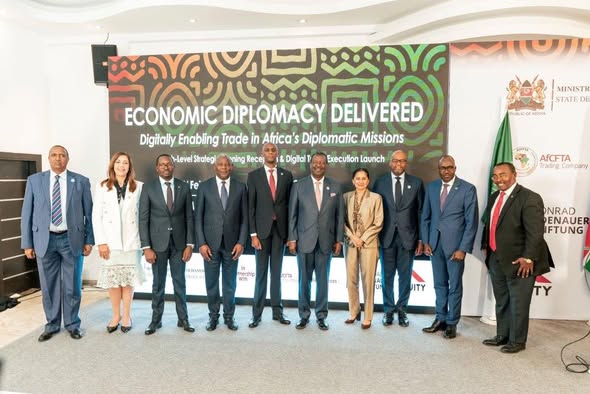Adesina urges greater self-reliance as Africa faces global uncertainty
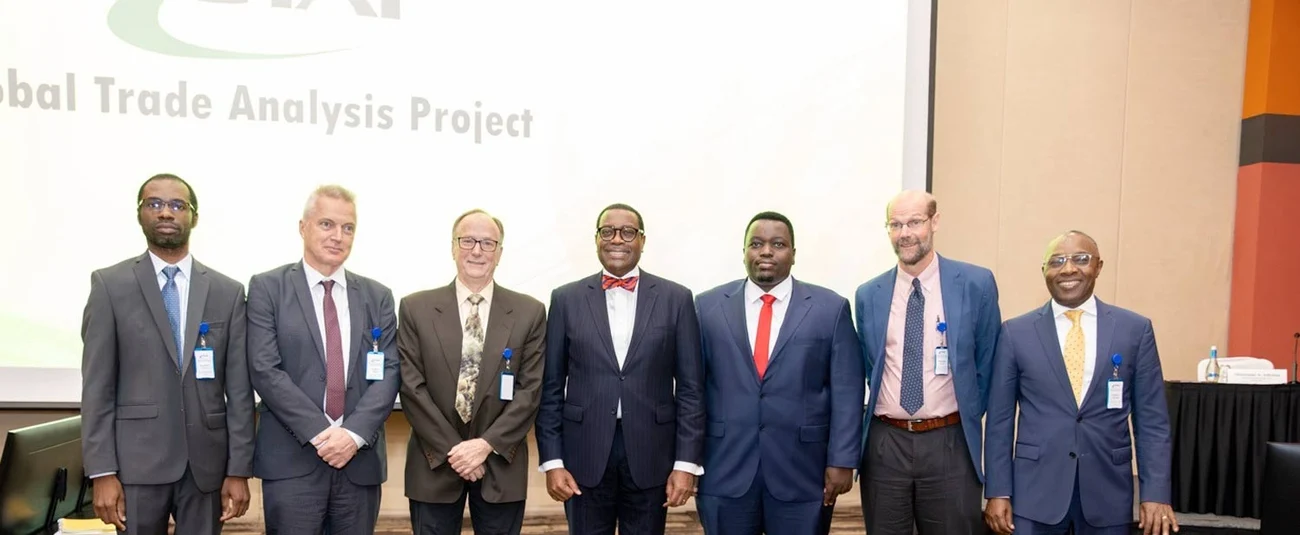
African Development Bank President Dr. Akinwumi Adesina has urged Africa to take charge of its destiny as the world confronts global shocks, tariffs-induced trade disruptions, climate impacts and geopolitical tensions.
Adesina, who was the distinguished keynote speaker at the 28th Annual Conference on Global Economic Analysis in Kigali, Rwanda said, “Africa must chart its future, relying not on the benevolence of others, but on its own determination.”
The international conference held from 25 – 27 June brought together leading economists to discuss global economic challenges. It was co-hosted by the United Nations Economic Commission for Africa and Purdue University’s Global Economic Analysis Project. Addressing the high-level conference that brought together the world’s leading economic thinkers and researchers, Adesina stressed, “the era of aid or free money is gone. African countries must now learn to develop via the discipline of investments.”
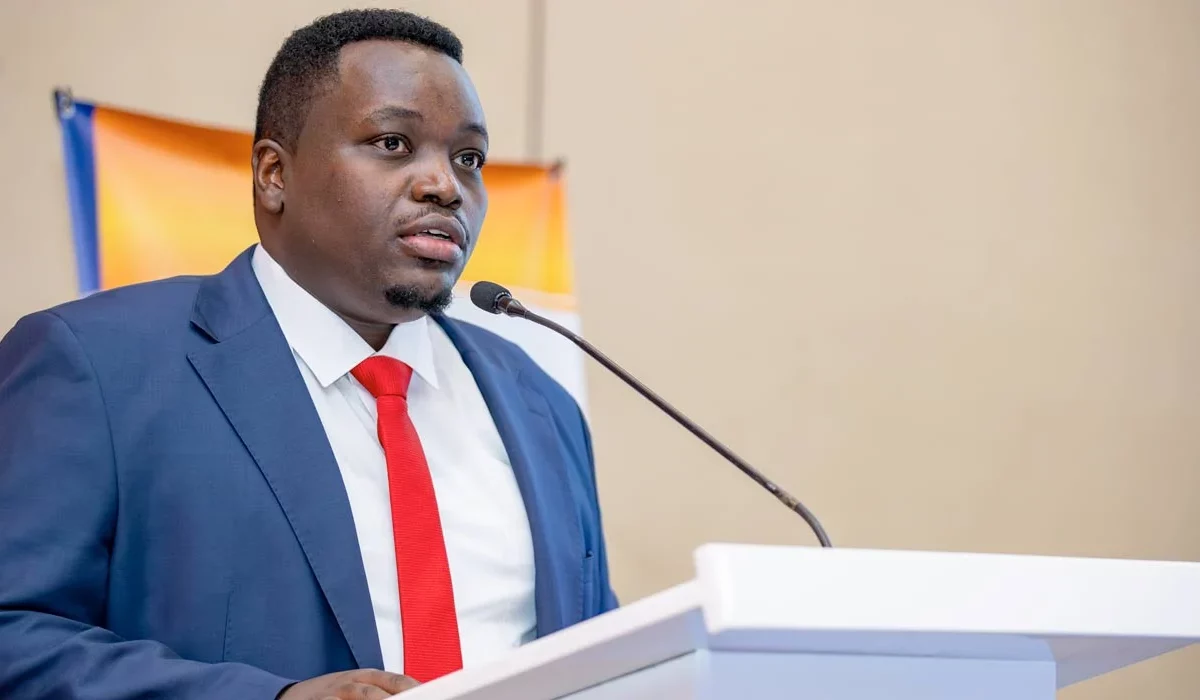
Rwanda’s National Treasury Minister Godfrey Kabera said “economies are being tested, from volatile commodity prices driven by geopolitical conflicts to the disruption of global trade routes.”
He described the conference as timely for deepened knowledge sharing as Africa grapples with overlapping development challenges.
Adesina further noted that the recent tariffs introduced by the United States will have negative consequences on the continent’s economies by increasing inflation, weakening local currencies, and reduce export revenues, while constraining nations already grappling with shrinking aid flows.
For Africa to economically advance at scale and speed, the Bank president called for a radical shift toward value addition of its commodities. “The export of raw materials is the door to poverty. The export of value-added products is the highway to wealth,” he said.
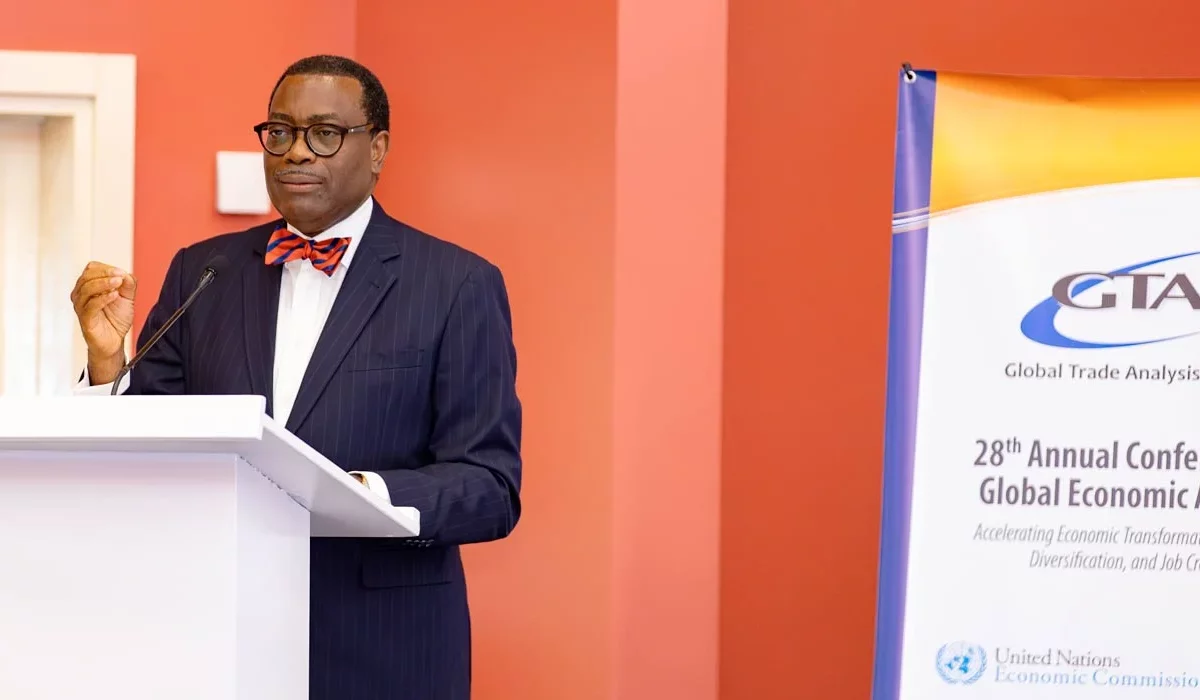
The era of aid or free money is gone; African countries must now learn to develop via the discipline of investments,” Adesina stressed.
Adesina reiterated the need to promote robust people-centred policies that accelerate regional trade within Africa. According to Adesina, despite being home to 1.4 billion people, Africa’s share of world trade remains stuck at only 2.5%. He called for full implementation of the African Continental Free Trade Area (AfCFTA) whose combined market of $3.4 trillion could boost intra-continental trade by 50%, lift 50 million Africans out of poverty, and create 14 million jobs.
Adesina welcomed the establishment of an African Credit Risk Agency which he has championed throughout his presidency. The agency is designed to act as a counterfactual to long standing biases and inaccuracies by the major international credit rating agencies, which often lead to higher borrowing costs for African countries.
Quoting a report by Moody’s Analytics, Adesina said Africa has the lowest default risk on infrastructure investments, at 1.9%, while more developed regions default risks reached up to 12%.
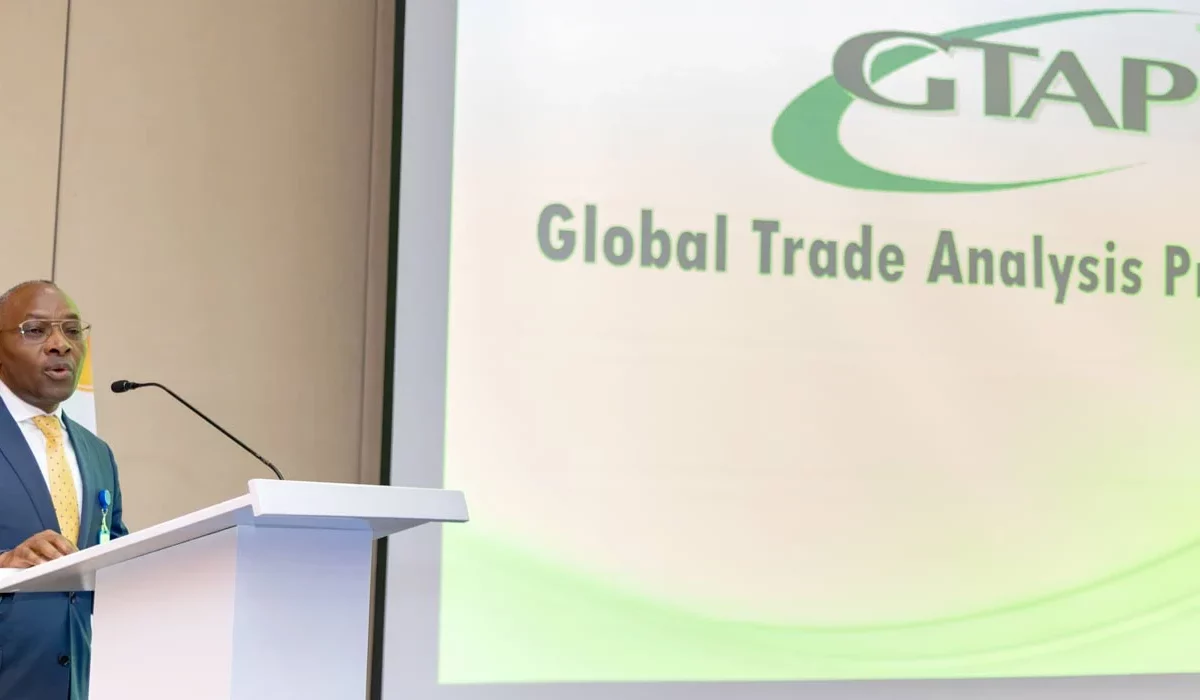
Stephen Karingi advocates for regional integration that extends beyond policies to include collaboration of researchers and policymakers.
The United Nations Economic Commission for Africa’s Director of Regional Integration and Trade, Stephen Karingi encouraged closer cross-border partnerships and collaborations. “As we explore the global dynamics of trade, climate, and development, let us remember the power of collaboration between data scientists, economists, and policymakers,” he said
The Global Trade Analysis Project, which was established in 1992, advances high-quality evidence-based analysis of global issues to facilitate better decision-making. It brings together more than 32,000 researchers around the world fostering collaboration, data development and ideas sharing for development.




